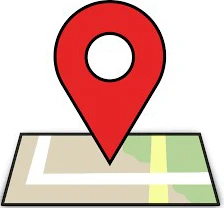Canada is a nation of multiculturalism and many cultures. Indigenous peoples had inhabited Canada for thousands of years and traveled through North America in ancient times before Europeans arrived. In the late 18th century, British colonialism in North America began with colonies along the Atlantic coast. Learn more about Canada’s history in a nutshell in the post below.
Canadian History at a Glance
| 25,000 B.C. | Evidence of earliest human presence in what is now Canada |
| 1000 A.D. | The Vikings set up a settlement in Newfoundland |
| 1497 | John Cabot reaches Canada’s Atlantic coast |
| 1534 | Jacques Cartier explores the Gulf of St. Lawrence |
| 1547 | Maps begin showing references to land north of the St. Lawrence River as “Canada.” |
| 1608 | Samuel de Champlain establishes the settlement of Québec on the St. Lawrence River |
| 1610 | Henry Hudson explores a bay that is later named for him, Hudson Bay |
| 1670 | The Hudson’s Bay Company is founded |
| 1754 | Beginning of the French and Indian War in America, though not officially declared for another two years |
| 1763 | The Treaty of Paris forces France to surrender New France (French territory east of the Mississippi River) to Great Britain |
| 1774 | New France was placed under British North American rule as a result of the Québec Act; the act also guaranteed religious freedom for Roman Catholics |
| 1776 | The American Revolution begins; Loyalists seek refuge in Canada |
| 1791 | The Constitutional Act of 1791 divides Québec into Upper Canada and Lower Canada |
| 1793 | Alexander Mackenzie crosses Canada to reach the Pacific coast |
| 1812 | Red River settlement was established in Manitoba by Lord Selkirk |
| 1812–1814 | The War of 1812 was fought between the United States and Great Britain; the U.S. attempts to occupy Canada fail |
| 1841 | The Act of Union unites Upper and Lower Canada into the Province of Canada |
| 1867 | Confederation – The British North American Act establishes the Dominion of Canada; Sir John A. Macdonald becomes the first Prime Minister |
| 1869 | Canada purchases Rupert’s Land from the Hudson’s Bay Company |
| 1870 | Louis Riel leads Métis resistance in the Red River uprising |
| 1873 | Royal Canadian Mounted Police (RCMP) are formed |
| 1875 | The first public ice hockey exhibition played in Montréal |
| 1885 | Canada’s transcontinental railway is completed |
| 1897 | The Klondike Gold Rush begins |
| 1914–1918 | More than 600,000 Canadians served in the Allied forces during World War I; more than 60,000 die |
| 1917 | Income tax was introduced as a temporary wartime measure but remained in effect indefinitely |
| 1929 | The Great Depression begins |
| 1939–1945 | More than 1 million Canadians serve in World War II; almost 100,000 die |
| 1945 | Canada joins the United Nations |
| 1949 | Canada, the United States, and 10 western European countries form the North American Treaty Organization (NATO) |
| 1950–1953 | Canadian troops serving in the U.N. forces during the Korean War |
| 1957 | Lester B. Pearson, future Prime Minister, wins the Nobel Peace Prize for helping to resolve the Suez Crisis |
| 1960 | Aboriginal Peoples receive the right to vote |
| 1965 | Canada adopted a new flag for the country, consisting of two red bands separated by one white band with a red maple leaf in its center |
| 1980 | Québec’s first referendum attempts and fails to obtain “sovereign association.” |
| 1981 | Terry Fox dies of cancer without being able to complete his cross-Canada Marathon of Hope |
| 1982 | The Constitution Act is passed, meaning Canada is now free to interpret and amend the constitution without referring to the British Parliament (the “repatriation” or bringing home of the constitution) |
| 1988 | The 1988 Winter Olympics are held in Calgary, Alberta |
| 1988 | Canadian Multiculturalism Act affirms the recognition and value of rich cultural diversity |
| 1992 | Toronto Blue Jays win baseball’s World Series |
| 1993 | Toronto Blue Jays again win World Series |
| 1993 | Jean Chrétien became Prime Minister when the Liberal Party obtained the majority of seats in Parliament |
| 1994 | The North American Free Trade Agreement (NAFTA) takes effect between Canada, the United States, and Mexico |
| 1995 | A second referendum and failure by Québec to secede from Canada |
| 1999 | Nunavut has been officially named Canada’s third territory and is self-governed by the Inuit living there |
| 2001 | Census records a population of approximately 31 million people in Canada. |
